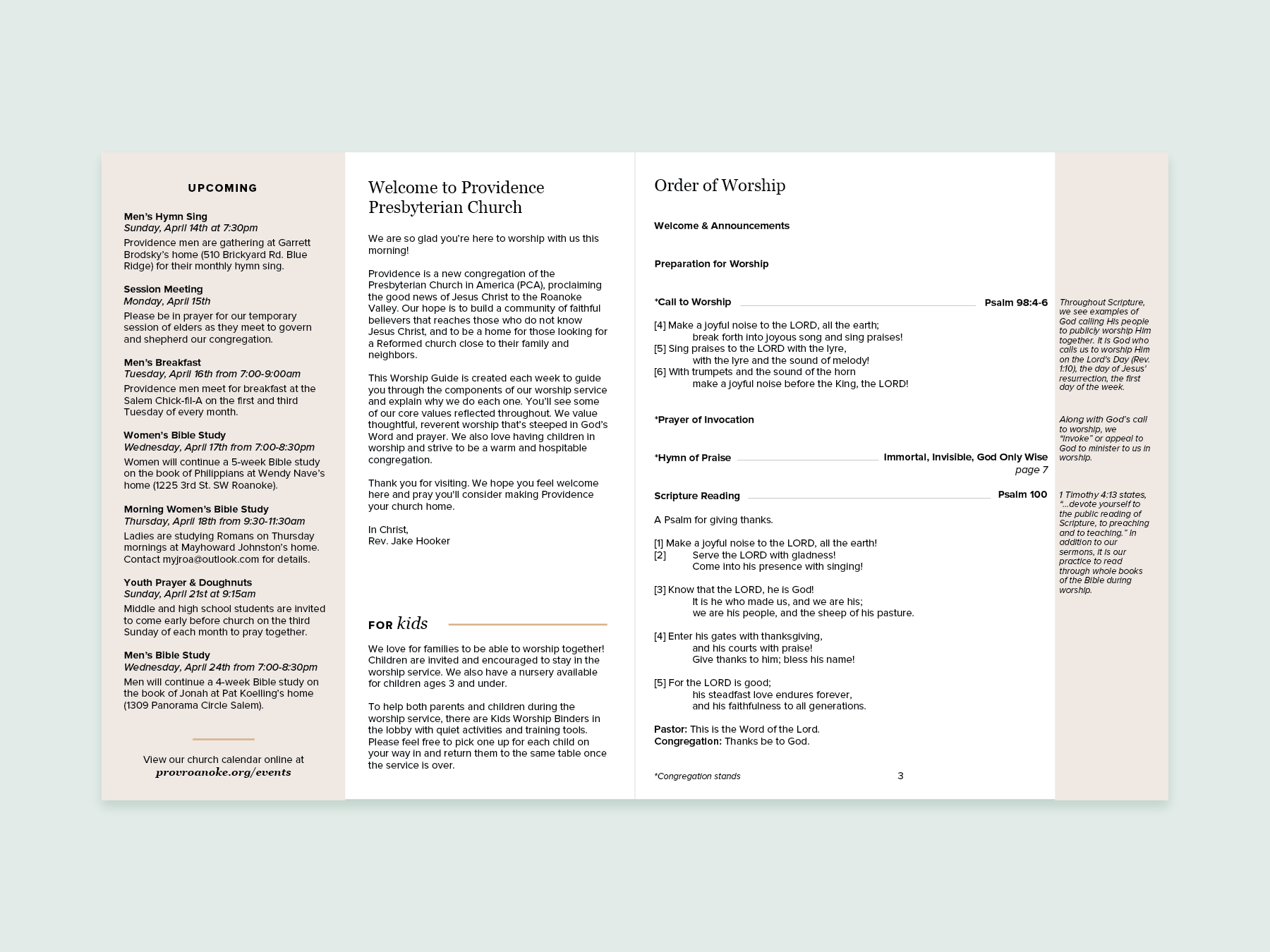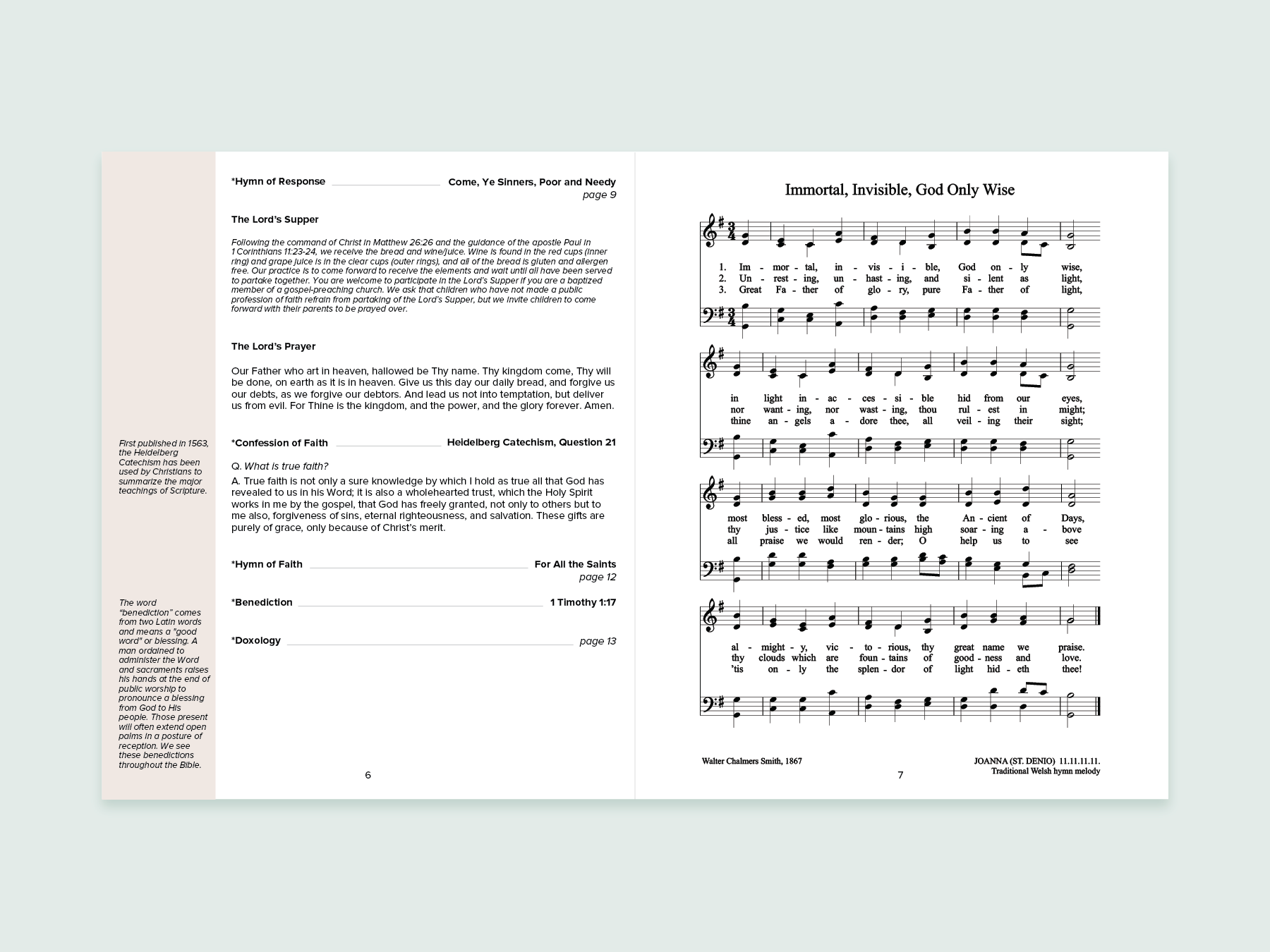Mercy for Sinners - 1 Timothy 1:12-20
Last week, we began our new series in the book of 1 Timothy. Pastor Doug preached from 1 Timothy 1-11. And by way of reminder, Paul is writing to his young assistant, Timothy, and Paul left Timothy to minister to the church in Ephesus. So, obviously what we have in 1 and 2 Timothy are letters to Timothy, written with the intention of being read aloud to the whole church as well.








Much of verses 1-11 are a warning against false teaching, but Paul shifts gears in verses 12-20. He moves from warnings against false teachers to reminding Timothy of the truth of the gospel.
In verse 15, we get that wonderful trustworthy statement, “that Christ Jesus came into the world to save sinners…”
So much of Paul’s point really centers around the mercy we receive through Jesus Christ. We learn three things from this passage: first, we must express gratitude for God’s mercy (vv. 12-14), second, we should reflect on God’s mercy (vv. 15-17), and lastly, we’re reminded how we are to respond to God’s mercy (vv. 18-20).
Gratitude for God’s Mercy (vv. 12-14)
The Apostle Paul reminds us of his past there in verse 12. He “thanks Jesus Christ for appointing [him] to his service,” that is made him an apostle in the church, despite the fact that formerly he was a “blasphemer, persecutor, and insolent opponent.”
And of course, if you know Paul’s background, then what he says makes perfect sense, because prior to becoming an apostle Paul persecuted Christians. But now, this former persecutor of the faith, has become a preacher of the faith.
He was “a Hebrew of Hebrews; as to the law, a Pharisee.” He was an excellent practitioner of Judaism. So, what exactly changed? How did he go from persecutor to preacher?
The answer is quite simple: The mercy of God. He says in verse 13, “But I received mercy…”
Pastor Doug reminded us of the difference between mercy and grace last week, but it’s worth repeating. Mercy and grace are very similar and I think are often used interchangeably, however, there is a slight difference.
Mercy is kindness and compassion when you deserve punishment. Grace is very similar in that it too, is kindness and compassion when you deserve punishment, but grace goes one step further: instead of receiving the punishment you rightly deserve, you’re instead rewarded.
In verse 13, Paul refers to God’s mercy in his life.
“But I received mercy because I had acted ignorantly in unbelief, 14 and the grace of our Lord overflowed for me with the faith and love that are in Christ Jesus.”
You might even read that and think that Paul is saying that God was merciful to him because of his ignorance. At first glance, it sounds like Paul is saying his ignorance and sin was the reason for God’s mercy.
But of course, that’s not what he’s saying. His point in verses 13 and 14 is that even though God had every right to punish him for his sin, God instead showered him in his mercy.
Remember where we begin in verse 12 - Paul begins by thanking God. He thanks God for showering his mercy on him, calling him to be an apostle, one who proclaimed the name of Jesus Christ in spite of the fact that he deserved his wrath and judgment!
He’s grateful! He’s thankful! He rejoices not in his own abilities, but in what God has done for him.
It reminds me of that passage from Luke 17 where Jesus cleanses the ten lepers. He heals ten lepers, but only one comes back to him. And do you remember why? Luke tells us:
“Then one of them, when he saw that he was healed, turned back, praising God with a loud voice; 16 and he fell on his face at Jesus' feet, giving him thanks.”
A pastor friend of mine once told me that he would periodically show his children mercy when they deserved to be punished. And after a while, whenever his children did something that they knew was wrong, they’d say to him, “Daddy, show me mercy!”
And of course the issue was that the gratitude that they once felt for his mercy was slowly replaced with a sense of entitlement. They weren’t grateful for mercy, rather, they expected it.
Doesn’t that seem to be true for Christians as well? Doesn’t it seem that the longer you’ve been a Christian the easier it becomes to believe you’re entitled to God’s mercy? We think I deserve God’s mercy.
But it’s a contradiction in terms isn’t it? You do not deserve mercy and that is precisely the point! When was the last time you were truly overcome by the mercy of God in your life?
Paul thanks God for the mercy he received through Christ and remembers the transformative power it had on his life. Even if you can’t pinpoint the exact moment of your salvation, have you ever wondered what your life might look like apart from the grace and mercy of God?
Where would you be apart from his merciful divine intervention? It’s scary to think about, isn’t it? We must, like Paul, cultivate hearts of gratitude toward the Lord.
We must pray, restore to me the joy of my salvation!
I’ve had the privilege of preaching in various churches over the several years. And I can’t tell you the number of orthodox, faithful churches that I’ve preached in that were completely spiritually dead.
Sometimes there was a scandal that destroyed the church or whatever, but other times, there was no clear explanation for a church’s lack of spiritual health.
One of my theories is that somewhere along the way, they forgot about the impact that God’s mercy had in their own lives. They have spiritual bullet proof vests that nothing can ever break through.
Are you, personally thankful for God’s mercy in your life? Or is the gospel message something that everyone else needs to hear? Everyone else needs to be reminded of these things, but you’re fine just the way you are.
It’s easy to fall into that mentality.
It’s interesting that Paul is saying this to Timothy who was the pastor of the church in Ephesus. Because later on in the book of Revelation, Jesus tells the church in Ephesus that he has one thing against them: they had lost their first love.
Are you like the nine lepers who run away from Jesus or are you like the one who turns back and falls at his feet in order to thank him?
In order to cultivate a heart of gratitude for the mercy and grace in Christ it’s helpful to reflect on who you were or who you might be apart from it.
Reflect on God’s Mercy (vv. 15-17)
Not only is it important to cultivate a heart of gratitude towards God, but it’s also important to reflect upon God’s mercy in your life.
Have you ever taken a personality test? Over the years, I’ve taken a bunch of them: I’ve done Myers-Briggs, the DISC Assessment, and Strengths Finders just to name a few. Some of the information was helpful, some of it I found to be less helpful.
But the hardest part of taking personality tests in my opinion is that it’s incredibly difficult to answer the questions honestly. And it’s not because I’m trying to lie about myself or anything like that, but it’s just incredibly difficult to evaluate yourself.
Because when I’m answering the questions I’ve found myself wondering, “Am I answering it this way because it’s actually the way that I am or am I answering it for who I want to be?”
Because often there is a big difference between the person that we actually are and the person we want to be.
In a similar way, in order to honestly reflect upon God’s mercy in your life you have to reflect upon yourself in an honest way.
Look at what Paul says in verse 15.
“The saying is trustworthy and deserving of full acceptance, that Christ Jesus came into the world to save sinners…”
Throughout Paul’s epistles he makes several “trustworthy statements.” And many scholars believe that Paul’s “trustworthy” statements were creedal statements of the early church. Remember, at this point in church history, there is no New Testament.
Christians were totally dependent upon the teaching of the Apostles to help them understand the Christian faith. And so, it really shouldn’t be a shock at all to think that Christians in the early church memorized short, succinct statements that articulated central elements of the Christian faith.
And what is more central to Christianity than remembering, “Christ Jesus came into the world to save sinners…”?
After all, Paul wants to distinguish the truth from the lies of false teachers. Remember that 1 Timothy 1:3-11 is primarily focused on false teaching.
The easiest way to combat false teaching is to simply share the truth of the gospel. It’s a wonderful timeless truth, isn’t it?
Christ Jesus came into the world to save sinners! We need to be reminded of the obvious truth that you and I are sinners. We deserve God’s condemnation and wrath for our sin.
And yet, Christ Jesus came into the world to save sinners like you and me. It’s frankly one of, if not the most elementary components of what we believe as Christians. It’s simple enough for a child to understand and yet, complex enough for an adult to spend a lifetime studying.
But how does Paul wrap up that trustworthy statement? “The saying is trustworthy and deserving of full acceptance, that Christ Jesus came into the world to save sinners, of whom I am the foremost.”
He refers to himself as the foremost sinner. Notice the present active tense. “I am the foremost.” Not, “I was the foremost.”
He sees himself, even in spite of his apostleship as a grievous sinner.
And this is what I was getting at with the personality test stuff. He reflects on himself in a brutally honest way. In fact, if we were with Paul as he was penning this letter, we might have told him, “cut yourself a little slack Paul!” You used to be a grievous sinner, but by God’s grace and mercy you’re no longer that anymore.
Which is of course true, but that’s not how he saw himself! Because the truth is, when you’re in Christ, when you’re trusting in him, you begin to see your sin much more clearly. It begins to stand out!
The little sinful tendencies that you used to never pay attention to suddenly begin to bother you more.
Perhaps you noticed that Paul says something very similar in verse 16: “But I received mercy for this reason, that in me, as the foremost, Jesus Christ might display his perfect patience as an example to those who were to believe in him for eternal life.”
Again, he refers to himself as “the foremost” - in the Greek it’s literally, “the first.”
Because Paul is setting up a dramatic contrast for Timothy. Not only does Paul see himself as the biggest sinner, he also sees himself as the biggest recipient of God’s mercy.
In other words, Paul is saying if you want to see a living testimony to God’s mercy - then look at me. I’m living proof of the gospel’s redemptive power.
After all, isn’t that true for you too? Sure you might not have spent any time killing Christians, (at least I hope that’s true!), but what I hope is true is that you can clearly see God’s mercy in your life!
In order to fully appreciate the beauty of the gospel, in order to fully appreciate what Christ’s death on the cross accomplished, it all starts with you and me assessing ourselves honestly.
Because in order to see the beauty of God’s mercy we must acknowledge our own sin for what it is: hostility towards God.
When you see your sin in that light, suddenly the mercy of God shines even brighter! Because it’s only by God’s grace and mercy that Christ’s sin atoning sacrifice on the cross covers your sin! Isn’t that true for all of us who trust in Jesus Christ?
If you are a Christian here this morning, then you have received what you do not deserve: God’s grace and mercy.
In order to fully appreciate the grace and mercy of God you must recognize the depth of your sin, but that’s the beauty of the gospel!
And when you look at your life from that point, you realize that we’re all living testimonies to God’s mercy aren’t we?
And it’s for this reason we rejoice and praise the living God! “To the King of the ages, immortal, invisible, the only God, be honor and glory forever and ever. Amen.”
When you really think about the blessings and goodness of God in Christ there is almost no other appropriate reaction than to explode in praise to God - which is exactly what Paul does in verse 17!
Because that’s where reflecting on God’s mercy should lead you and me - it should lead us to praise, rejoice, and thank God for what he has done for us in Christ!
Response to God’s Mercy (vv. 18-20)
Praising the Lord is a wonderful thing, but that isn’t where we should stop. God’s grace and mercy should propel you and I to live for Him. Our lives should be a response to God’s mercy.
Notice the charge that Paul gives to Timothy there in verse 18. You could summarize it as Paul encouraging Timothy to hold onto the doctrine that had been passed down to him.
The glorious gospel of grace in Christ is something that Paul wants his protege Timothy to hold fast to.
Paul even reminds Timothy of the prophecies that were made about him in order to encourage him to remain committed to the truth of the gospel and his ministry.
Which is why Paul tells him to wage “good warfare.” That is, Timothy should contend for the faith.
Because the Christian faith is worth fighting for. You cannot compromise your Biblical convictions depending on what’s going on either culturally or personally.
It’s not like your faith in Jesus Christ and what God’s Word teaches us is a hat that you sometimes wear. You don’t just pick it up off the shelf depending on the circumstances, no, it literally defines who you are.
There will come a day when your faith in Christ will put you at odds with something: whether it’s your family, friends, coworkers, etc. That is why it’s critical to resolve now that the goodness of God is far greater than anything that this world may throw at you.
You have no choice but to remain faithful to the God of mercy.
Undoubtedly those are difficult circumstances but notice how Paul encourages Timothy to hold on to his faith. Cling to your faith especially in the midst of challenging circumstances.
And even in the midst of warfare, Paul tells Timothy that he can have a good conscience.
Consider everything that Paul went through for his faith in Christ - he gives the full list of things that he went through in 2 Corinthians 11:25-30. He tells the Corinthians:
“Three times I was beaten with rods. Once I was stoned. Three times I was shipwrecked; a night and a day I was adrift at sea; 26 on frequent journeys, in danger from rivers, danger from robbers, danger from my own people, danger from Gentiles, danger in the city, danger in the wilderness, danger at sea, danger from false brothers; 27 in toil and hardship, through many a sleepless night, in hunger and thirst, often without food, in cold and exposure.”
Suffice it to say, he went through a lot for the cause of Christ!
Interestingly, he never expresses regret over it! Nowhere is he like, yeah, I didn’t have to go through all those things or that wasn’t worth it.
Paul’s point to Timothy is something that he knows firsthand because no matter what he goes through in life for his faith, Jesus is worth it.
So cling to the truths of the gospel unlike Hymenaeus and Alexander who “have made shipwreck of their faith.”
Hymenaeus is mentioned in 2 Timothy 2:17. Paul writes there, “But avoid irreverent babble, for it will lead people into more and more ungodliness, 17 and their talk will spread like gangrene. Among them are Hymenaeus…”
It’s a little bit more difficult to pin down exactly who Alexander is because it was such a common name at the time. Nevertheless, both Hymenaeus and Alexander were a problem in the church in Ephesus.
I think it’s an important point to note that in the original Greek it says some have made a “shipwreck of the faith.”
I actually think the NIV is the best translation of these two verses:
“which some have rejected and so have suffered shipwreck with regard to the faith. 20 Among them are Hymenaeus and Alexander, whom I have handed over to Satan to be taught not to blaspheme.”
Why do I think it’s a big deal to point out that it technically says, “the faith instead of their faith?” Because Paul is emphasizing the fact that they were heretics, not genuine believers in Christ.
Paul is highlighting the fact that Hymenaeus and Alexander were false teachers, and that false teaching will destroy people. They made a shipwreck of the faith, you see. They’re the ones that Paul was speaking of in chapter 1 verses 6-7.
False teaching will end in spiritual destruction. False teaching is the pathway to hell, which is why Paul says he's turned them over to Satan.
His point is that you must know and cling to the truth in order to protect yourself and others from the schemes of the evil one!
Consider what Paul is doing on a more holistic level in chapter 1: He begins by warning Timothy against false teaching, then in verses 12-18, reminds him of the truth of the gospel, and in these last two verses he’s showing him where false teaching will lead him.
Paul is highlighting the difference between false teaching and the truth of the gospel. And one of the main themes that Paul highlights as a dividing line between true and false teaching is the grace and mercy of God.
Look again at what Paul says to Timothy:
“I was a blasphemer, persecutor, and insolent opponent. But I received mercy because I had acted ignorantly in unbelief, 14 and the grace of our Lord overflowed for me with the faith and love that are in Christ Jesus. 15 The saying is trustworthy and deserving of full acceptance, that Christ Jesus came into the world to save sinners, of whom I am the foremost.”
Here’s the danger you and I must reflect on today: when sin and its effects are downplayed, ignored, or minimized, the grace and mercy of God is downplayed, ignored, and minimized.
We speak honestly about sin because we believe in the transformative power of the gospel!
False teaching that robs God of his glory. But the gospel gives God the glory that he rightly deserves.
“The saying is trustworthy and deserving of full acceptance, that Christ Jesus came into the world to save sinners” of which you and I are the foremost.
Amen. Let’s pray together.
